What Age Do Babies Put Words Together
In this article you will find 27 Developmental Milestones to understand how and when babies learn to talk. Plus lots of activities to help promote your baby's early language development.
Having a baby is one of the most exciting times of your life. But it seems almost as soon as your little bundle of joy is born, you inevitably begin to ask questions like: "When will my baby say his or her first words?" "How soon will my baby say mama?" and "Exactly when will my baby begin to talk?"
If you are a first-time parent and perhaps have spent limited to no time around babies or newborns, then you likely have no idea when your baby should reach this important developmental milestone. Don't worry. As a first-time parent, there are many baby talking milestones that you have to look forward to, and they all come during specific stages of development. So, while you excitedly and anxiously question when your baby will utter his or her first word; your baby has already begun its journey into the world of language and speaking development.
Like every other parent, you most likely want to know how soon your baby will say his or her first word. You are looking forward to it and undoubtedly do not want to miss it.
Believe it or not, your baby communicates from the time that he or she is born. First, with coos, growls, cries, and yes, sometimes screams. This many times can alarm new parents, but it is completely natural. At this stage in your baby's life, it is the only way he or she knows how to communicate needs.
Eventually, at around 4 months old (for most babies, but not all), before they gain the ability to form words, babies try their best to imitate the sounds that they hear, mostly from their parents or other people around them. This is referred to as baby babble.
This babbling is a combination of sounds that a baby hears and then tries to imitate. For example, a parent may find that his or her baby responds using "baby words" as they speak to them from what appears to the parent as a one-sided conversation. But actually, there is much more to it.
Every parent looks forward to hearing their baby's first word. Whether it will be "mama" or "dada" is often at the center of this curiosity. These words will mimic words and sounds that they hear. By 9 months, babies gain the ability to string together different sounds and most will say their first word by the time they reach 12 months!
Let the battle begin! What will your baby say first, "mama" or "dada?" Even though many sources say that babies may begin to say "mama" or "dada" as early as 6 months old, it is also believed that "dada" is much easier for babies to say and is often said first.
It is important to note the difference between speech and language. Kidshealth.org says speech is more specific to verbal expression and articulation and language. Language refers to the system of expression and communication.
Developing the ability to understand language and verbally express themselves are equally important development milestones. It is recommended that you check in with your baby's pediatrician to ensure that both types of milestones are being met at every stage of development.
Baby talk or "sing-song" speech can be very beneficial to a baby's speech development. Parentese is a style of talking to your baby that has shown to greatly help babies develop language as well.
Looking for some learning activities to help with your child's language development? We have multiple learning activities that we know you will enjoy with your little one.
The following is a comprehensive list of all the baby and toddler developmental milestones for talking and learning to speak. The milestones are presented in the order which they would typically appear, so that you may easily track your baby's speech development mont-by-month.
Crying
Development Milestone emerges from age 0 to 2 months.
When babies cry, their crying sounds are more vowel-like with a nasal quality, this is produced on exhalation. Their cries grow louder and are longer by 1 month.
Comfort Sounds
Development Milestone emerges from age 0 to 3 months.
Early on, your baby will begin to make what are known as comfort sounds. Comfort sounds are typically short and connected with body movements. Examples include quiet "mmm," "nnn," and "ah" sounds.
Sucking Sounds
Development Milestone emerges from age 0 to 3 months.
At this stage, your baby is not able to dissociate sounds from body movement. However, he or she is able to make soft vowel sounds.
Rhythmic Crying
Development Milestone emerges from age 2 to 5 months.
At this developmental milestone, your baby will start to make sucking sounds, especially when he or she is feeling relaxed. These sounds can sometimes be related to hunger, but more often they are not.
Coos, Oohs and Ahhs
Development Milestone emerges from age 2 to 7 months.
Coos, oohs, ahhs, and crying are all how a baby first communicates his or her wants and needs. It will take experience and close attention to determine if your baby is crying because he or she is hungry, needs to be changed or is in pain. Fear not, because this is what your baby should be doing and remember as your baby's development grows, his or her ability to communicate wants and needs will as well.
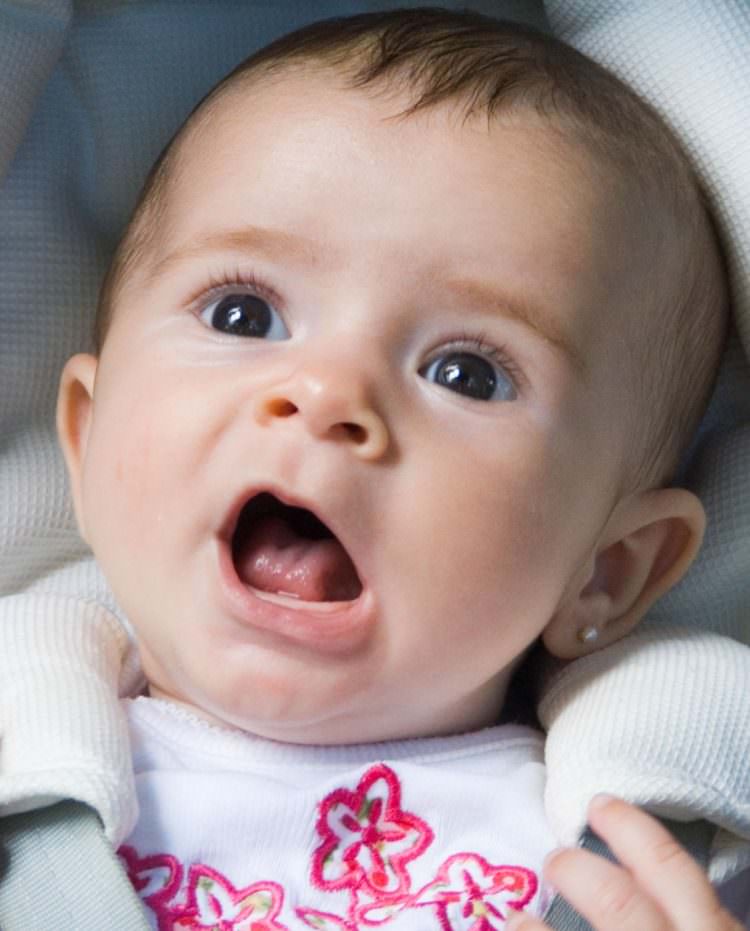
Are you nervous about what to do when your child makes these sounds? Speak to your baby then give him or her the chance to respond.
Disconnects Vocalization and Movement
Development Milestone emerges from age 2 to 7 months.
At this milestone your baby will make soft vowel sounds without having to move his or her body excessively. The best time to observe this milestone is when your child is content and laying on his or her back with something hanging above him like a toy or mobile.
Baby Babble
Development Milestone emerges from age 4 to 6 months.
Baby babble usually begins at around 4 months old. Babbling is a slightly more developed form of communication your baby uses as he or she attempts to mimic the sounds around him. This is when your baby says two syllable repetitions of a consonant-vowel combination like "baba" or "dada." By the time your baby is 6 months old, he or she can usually respond to his or her name.
Related Activities
First Words
Development Milestone emerges from age 5 to 9 months.
After the first few months of baby babble, your baby begins to say random words. Your baby may start to say repetitive sounds and syllables by 6 months. Listen for baby words like "baba," "dada," and "yaya."
Although many parents may interpret "dada" and "mama" as their child labeling them, this may not be the case. However, encouraging them to say these words will help him learn to do so later on.
Vocalizing
Development Milestone emerges from age 7 to 9 months.
At this stage, your little one has the ability to start making sounds of surprise or glee. These exclamations will be short, loud sounds of different degrees of pitch.
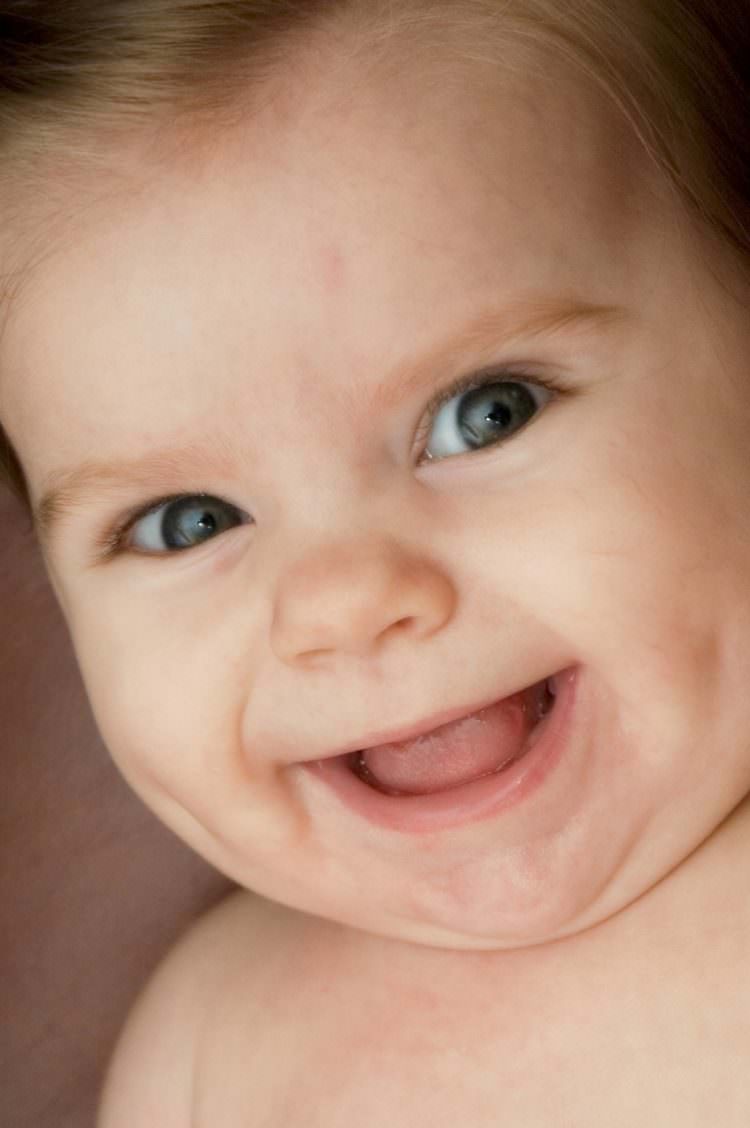
Related Activities
Babbling with Inflection
Development Milestone emerges from age 7 to 12 months.
Now that your baby has reached this age, his or her baby babbling will have varied intonations and rhythm. It may sound like your baby is asking you a question or making a command.
Related Activities
Single Consonant Babbling
Development Milestone emerges from age 8 to 12 months.
Now your baby is ready to break down his or her earlier babbling into single syllables. At this stage, "baba" may become "ba" and "dada" may become "da."
Frequent Consonant Sounds
Development Milestone emerges from age 10 to 15 months.
In order of difficulty (B, M, P, D, T, N, G, K, W, H, F, V, Th, S, Z, L, R), your baby will begin to make consonant sounds during his or her baby babble. Because of the order of difficulty of these consonant sounds, your baby will mostly likely say "ball" before "sock."
Babbles Alone
Development Milestone emerges from age 11 to 12 months.
When your baby is left alone, he or she will begin to monologue. He or she will make vocal sounds with inflections that may sound like commands or questions.
Walking Talking Plateau
Development Milestone emerges from age 11 to 15 months.
Congratulations! Your little one is now walking. This is a huge physical milestone that naturally causes your child to plateau in his speech development. Even if your child's speech doesn't plateau, it is common for babies to not be able to talk while walking at this stage.
Distorts Words
Development Milestone emerges from age 12 to 17 months.
At this stage, your baby may begin to distort words as he or she is is beginning to talk. For example, your baby may say "poon" for spoon or "ca" for cat.
Beginnings of Jargon
Development Milestone emerges from age 12 to 18 months.
This is when your baby begins to start jargoning, which to you will sound like an attempt at a conversation. Your baby will do this most often when he or she is left alone.
Building Vocabulary
Development Milestone emerges from age 15 to 21 months.
By 12 months, your baby should transition from babbling to single words. Most babies should have at least 20 words in their vocabulary by 18 months.
As the parent is it important to show enthusiasm at every attempt your baby makes to speak.
Related Activities
Jabbers While Playing
Development Milestone emerges from age 17 to 19 months.
At 17 months, your baby will begin to say a variety of syllables with different sound combinations, much like he or she is having a conversation. This type of jabber is more evident during play at this stage.
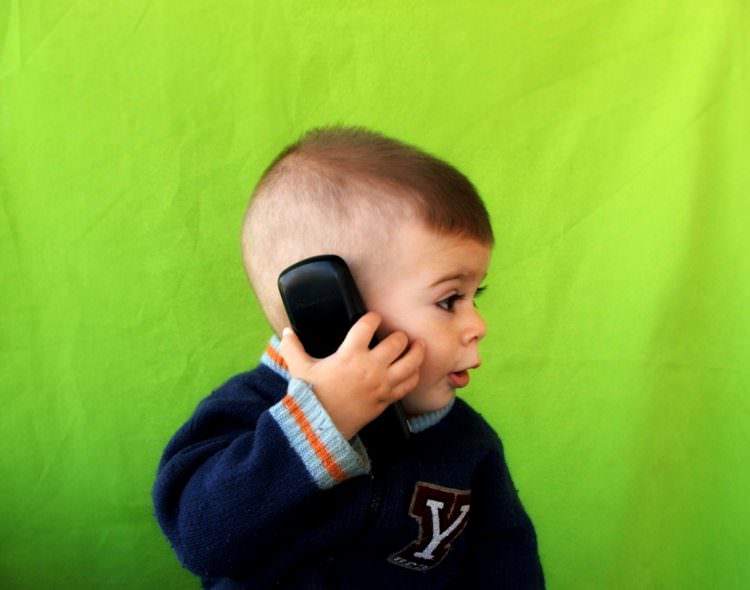
Uses Jargon Well
Development Milestone emerges from age 18 to 22 months.
This stage is when your child seems to be talking, asking questions, commenting, or even expressing surprise. Yet, you may not be able to understand a word of what they are actually saying.
Copies Sounds from Environment
Development Milestone emerges from age 18 to 21 months.
Your baby may already be imitating sounds from the environment, but now he or she is also able to use consonant, vowels, and voice changes.
Uses Words 65% of the Time
Development Milestone emerges from age 20 to 24 months.
By 20 months, you and your family should be able to understand more than half of your baby's words, even if the pronunciation is not exactly correct.
Masters Jargon
Development Milestone emerges from age 22 to 24 months.
Your child may have been in the "jargon stage" as early as ten months old. However, their jargon peaks right before 24 months and they truly speak with good adult-like stress and intonation.
Clear Consonant Sounds
Development Milestone emerges from age 22 to 24 months.
By 2 years old, in order of difficulty (P, B, M, K, G, W, H, N, T, D), your baby will begin to make these consonant sounds more clearly.
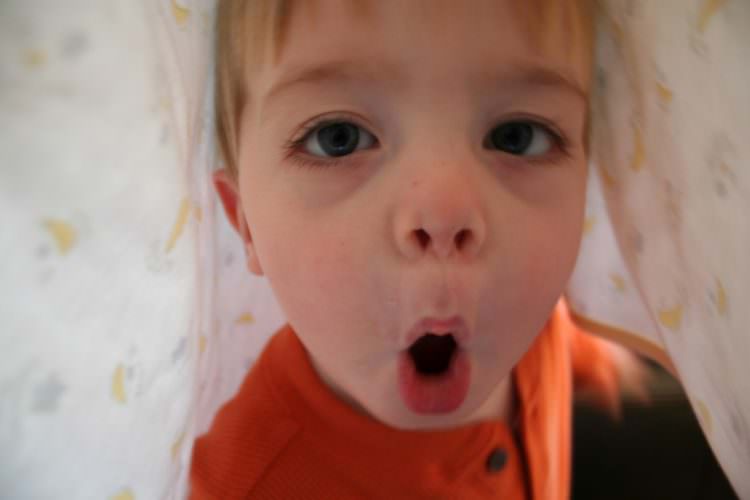
Some Correct Words
Development Milestone emerges from age 28 to 32 months.
Now your little one can say most vowel sounds clearly along with the following sounds: p, b, m, k, g, w, h, n, t, and d. Other sounds may be more difficult. Words like "open," "eat," or "apple" are likely to be easier for your child to say.
Simple Sentences
Development Milestone emerges from age 29 to 31 months.
At this age, your baby has become a toddler, his or her vocabulary is constantly growing, and stringing together those 2 and 3 word sentences gets easier. Your child's self awareness is also developing at this stage. He or she may become more vocal about what they don't like or what they want. He or she may also get pronouns confused.
Repeating Words
Development Milestone emerges from age 29 to 36 months.
At this stage, what might sound like stuttering to you is actually your child learning to use more complicated vocabulary and grammatical structures. Don't worry because this is a normal stage of language development.
Sophisticated Talker
Development Milestone emerges from age 35 to 48 months.
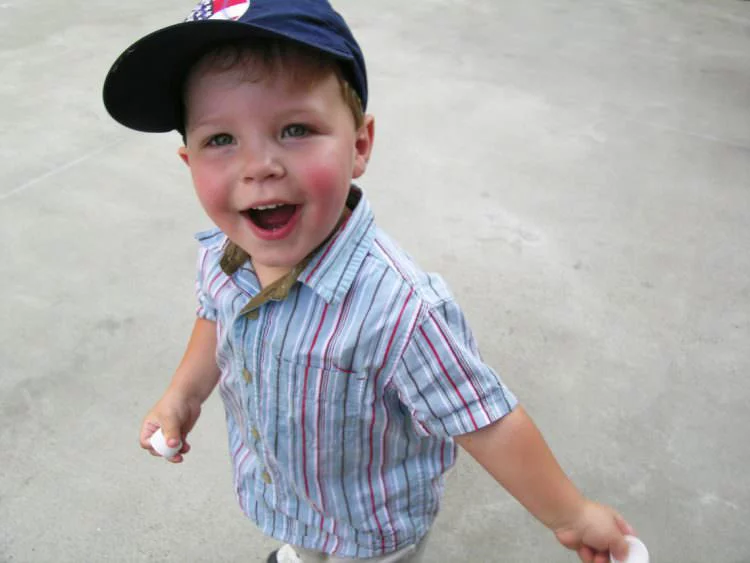
Now, that your little one is 3 years old, he or she is likely talking up a storm. At this stage, he or she should be able to carry on a conversation. Understanding your child's speech should also be much easier at this stage.
What you can do to help your child in this stage? Give directives. It should be easier at this stage. For example, tell your child to "Please pick up your toy."
A developmental delay is often diagnosed when a child does not reach their expected developmental milestone when expected. They can range from a minor delay to a more significant delay, but it is important to not confuse developmental delays with a simple lagging behind. Delays can also occur in just one area. Be sure to always consult your child's pediatrician with any questions or concerns.
We hope that this information has helped you to learn more about your baby and what milestones are headed his or her way. Do you have a pregnant friend or mommy friend that could benefit from this article? Share our post because you never know who this may help!
What Age Do Babies Put Words Together
Source: https://www.adam-mila.com/milestones/language-development/speaking/